XLR8R’s Best of 2012: Labels
In 2012, it was easier than ever for artists to deliver music directly to their […]

XLR8R’s Best of 2012: Labels
In 2012, it was easier than ever for artists to deliver music directly to their […]

In 2012, it was easier than ever for artists to deliver music directly to their audience. That being said, it’s hard to shake the notion that record labels—at least the good ones—are still incredibly important. Simply by providing a steady stream of quality music, a label can be so much more than a vehicle for releasing and selling music. The best imprints operate like a well-curated gallery; they provide a sort of editorial perspective, and watching that perspective develop from one release to the next only adds to the intrigue. Even better, there’s no set formula for launching, running, or maintaining a solid label; methods that work for one might be disastrous for another. As such, the idea of selecting the year’s best labels is admittedly a highly subjective process. Nevertheless, we’ve done our best to cobble together a list of the 10 labels whose 2012 campaigns left us the most impressed.
(Editor’s Note: For those curious about our readers’ favorite labels, we suggest taking a look at our recent Labels You Love feature, which was voted upon and published just last month.)
10. Aus
Midland, George FitzGerald, Bicep, and Cottam—when those four artists make up the bulk of an imprint’s output for the year, it’s easy to understand how it could have a good 2012. Over the past 12 months, Aus abided by the ethos of quality over quanity, issuing just five original EPs and two records of remixes. In many ways, this focused approach goes beyond the manner in which Aus has built its catalog, as it’s also reflected in the music being released—Midland’s Placement EP was intensely aimed at deep cuts and broad textures; George FitzGerald’s “Child” came stripped of the London producer’s usual bath of chords, making for a powerfully efficient anthem which became one of 2012’s longest-lasting dancefloor pleasers; and Bicep’s You/Don’t EP showed that the retro-loving duo was also capable of crafting patiently reserved and immensely engrossing modern house music. A similarly refined approach was taken by Aus’ sister label, Simple, which had a slim but solid year with immersive releases from the likes of Sei A and Dusky. Like the consistently simple graphic design that graces each of the label’s records, Aus’ sound has always been one that favors the clean, the precise, and the polished side of forward-thinking dance music, and in 2012, this dedication proved more fruitful than ever. Glenn Jackson

9. Turbo
Tiga‘s Turbo Recordings is nothing new—since 2001, the label has churned out a quality stream of electro-techno and house to jack the dancefloor, while deftly emerging unscathed from the ashes of electroclash and dead-horse tech house. But 2012 has really been an amazing year at Planet Turbo, as the label has consistently pulled the best from a roster that increasingly reads like a who’s who of big-room house and techno. With an overload of overly perfectionist minimal techno and precious post-dubstep currently crowding the shops, Turbo is a big, dark, banging reminder of why people started going to raves in the first place. In one corner, Azari & III serves up retro-house flavors while Duke Dumont burrows into listeners’ hearts with infectious anthems like “The Giver” and newcomers like Nautiluss, Locked Groove, and Gingy & Bordello stealthily creep onto the dancefloor; down in the black basement, Gesaffelstein’s offers evil-minded industrial vibes alongside Clouds’ acid breakbeat techno; meanwhile, sister label Twin Turbo (started in 2011) is an all-digital farm team, presenting a quick ‘n’ dirty outpouring of unusual club hits from the likes of Zoo Brazil and John Roman. That Turbo can put out this volume of club tracks without becoming formulaic or corny is a real milestone. Is this music from 1992? Is it from 3002? Who cares, let’s party. Vivian Host

8. Running Back
Nothing better illustrates the idiosyncratic nature of Running Back than its decision to release Phillip Lauer’s Phillips and Redshape’s Square in the same year. An ode to ’80s soundtrack music and an exploration of the id through creepy techno? The two records couldn’t be more diametrically opposed. Yet Gerd Janson’s long-running German imprint has never really subscribed to any internal ethos beyond a dedication to quality. And though both LPs are strange in relationship to each other, within the world of Running Back, they’re just two more standout moments in what is now one of the most well-curated discographies in European dance music. This is all without taking into account the year’s string of EPs. Though there was nothing with the peak-time attraction of Todd Terje’s Ragysh or the novel utility of Acoustic High-End Research’s Strada Professional Sound Effects Vol. 1, there was plenty that kept the label’s 12″s corner-side-up in tastemaker record bags around the world. These came from producers both widely recognized and just getting started: Theo Parrish’ Hand Made was easily one of the Detroit veteran’s most playable records in recent memory, Disco Nihilist’s Moving Forward offered a glimpse of the producer’s more cheerful side, and Matthew Styles’ Aji-No-Mori was a varied dancefloor killer that mixed sampled breaks with new-school house appeal. To put it succinctly, it was another great and eclectic year with one of our old favorites. Derek Opperman
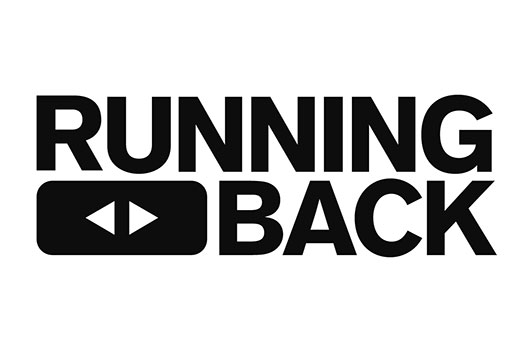
7. 3024
There is something wonderfully distinctive about 3024. Its records always come wrapped in the uniquely vibrant modern collages of Erosie, and though the music often evades specific genre classification, the records consistently have a machinist bent, which is no doubt a result of Martyn’s curating prowess. In truth, 2012 was not full of too many surprises from the label. After appearing on a single side of 3024 wax last year, Trevino (the techno-rooted project of Markus Kaye, perhaps better known by his former D&B alias Markus Intalex) returned for a full EP. Instra:mental’s Jon Convex again offered up a helping of his bass-minded experiments (this time enlisting dBridge as a vocal collaborator) on the Lied to be Loved EP. Contributions from Redshape and Jacques Greene made for 3024’s proudest moments of 2012, the masked German crafting muscular, no-frills techno on “Throw in Dirt” b/w “The Land” while the Montreal youngster momentarily stepped back from his R&B-coated garage explorations to deliver a raw trio of tunes on the Ready EP. 3024’s success continues to stem from how closely it reflects the tastes of its head honcho, and while Martyn could only find four releases that fit the mold this year, the sound of his imprint still had a substantial impact. Glenn Jackson
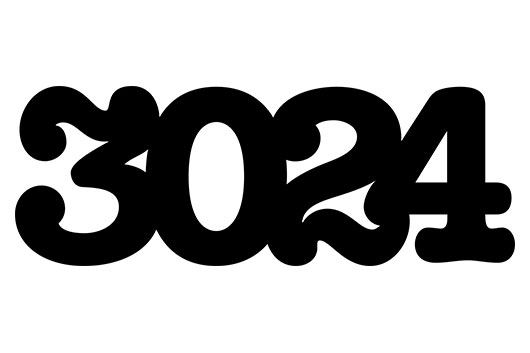
6. Unknown to the Unknown
There is something to be said for meticulously curated labels. Without naming any names, it’s pretty easy to spot their releases, each one painstakingly assembled to convey a sense of uniformity, or their new signings, who offer slight twists on the label’s sound. It’s a familial and familiar approach, not to mention one that allows fans to always know what they’re getting. Unknown to the Unknown is not one of these labels. Its founder DJ Haus doesn’t release just anything, but the label’s schedule does seem to completely bend to his whims. 2012 saw Unknown to the Unknown spread some 16 releases across digital and vinyl, and its manic production pace was matched by the freewheeling vibe of the actual music. The variety careened from DJ Stingray’s high-speed electro futurism to DJ Q’s slick melding of jungle and modern bassline, from Ron Hardy-style house by Portuguese duo Photonz and Chicago eccentric Marcus Mixx to Mista Men’s frenetic take on garage, though these examples merely scratch the surface. The label’s art direction, which is perhaps best experienced via the imprint’s wild YouTube channel, isn’t bland by any means—it’s frequently outrageous, as a matter of fact—and it forms a suitably loud complement to the music. But in the greater landscape, Unknown to the Unknown’s reckless disregard of genre is what really sets it apart. Party music is supposed to be uninhibited, after all. Steve Kerr
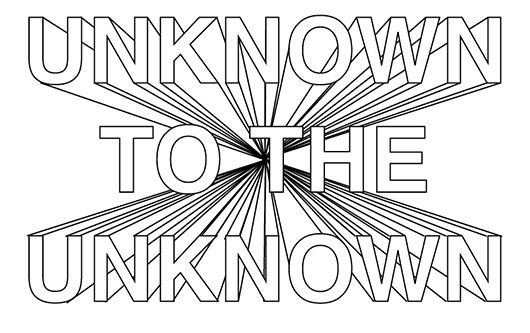
5. Hypercolour
Though a 4/4 beat pulses through each of its releases, to try and tidily sum up London’s Hypercolour as merely a family of house and techno imprints is to neglect everything that has made it such a joy to follow these past 12 months. Whether it’s the glistening, R&B-studded sounds of J.Alvarez’s Overseas Highway EP for sub-label Hype_LTD, the guttural growl that pervades Tom Demac’s “Critical Distance Pt. 2,” the tweaky 2-step of Shenoda’s “Everytime I Say” on the Losing Suki imprint, or the slinky bounce Herbert wove into Maxxi Soundystem’s “Regrets We Have No Use For—and those are just a few of the Hypercolour’s many highlights from 2012—the A&R braintrust of Alex Jones, Jamie Russell, and Ste Roberts has consistently proven that normal for Hypercolour is an absence of exactly that. One can never be exactly sure of what to expect when first pressing play on the latest release from this strikingly individualistic crew—although there’s a good chance that bouncy, upbeat rhythms will be involved—but there’s never any need to doubt its caliber. It’s hard to imagine a better form of normalcy than that. Joshua P. Ferguson

4. Rush Hour
Amsterdam dance imprint Rush Hour has long been defined by its prolific output. Starting in the early ’00s, the label has built a solid reputation off a style that charts a familiar line from dance music’s regional past to its global present. A big part of that effort stems from Rush Hour’s ability to balance its catalog between archival reissues and forward-thinking originals. Its 2012 course was very much in this vein, the label maintaining a breakneck pace and putting out releases at such a rate that following everything was almost impossible. On the older side was The Burrell Brothers’ The Nu Groove Years: 1988-1992, a compilation that explored the gritty and dizzyingly influential sound of one of New Jersey’s most beloved production duos. On the newer side, this was the year that the label introduced the dark, hardware-driven sound of Xosar via her ambient-tinged debut, Ghosthaus. It also saw the second release from Policy, whose One Last Time EP was a heady attempt at fusing bass sensibilities with early-morning house appeal. This is without even mentioning the tracks from immediately recognizable names like Âme, Gene Hunt, Recloose, and KiNK. With so much out in one year, summarizing it all would require a much larger column, but that’s hardly a complaint when one considers just how good the imprint has been this year. Derek Opperman
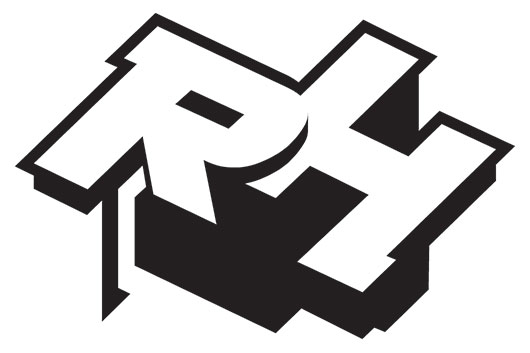
3. Tri Angle
XLR8R‘s top label of 2011 had a lot to live up to over the past 12 months. We were far from the only ones to pile praise on Robin Carolan’s Tri Angle imprint at the end of last year, and with good reason; 2011 saw groundbreaking releases from the likes of Clams Casino, How To Dress Well, Holy Other, and Balam Acab matched by a quietly revolutionary modus operandi—that a small label largely operated by one man could outshine its rivals thanks to thoughtful curation and an impeccable aesthetic. Fortunately, Tri Angle has shown no signs of slowing down in 2012. Fully escaping the shadow of “witch house,” the label has confronted dance music more directly than ever before by playing home to Howse’s atmospheric take on footwork, releasing Vessel’s dense meld of dub and techno, and supporting Evian Christ’s sparse experiments with 808 hip-hop and cut-and-paste soundscapes. It’s been a year where Holy Other has lived up to the promise of his debut EP with a solid proper LP, and the label has even flirted with the mainstream in the form of AlunaGeorge’s sleeper hit “You Know You Like It.” Most importantly though, 2012 has seen Tri Angle move forward and develop without losing any of its unique, resolutely independent charms—as long as it continues to do that, it’ll remain one of our favorite labels out there. Si Truss
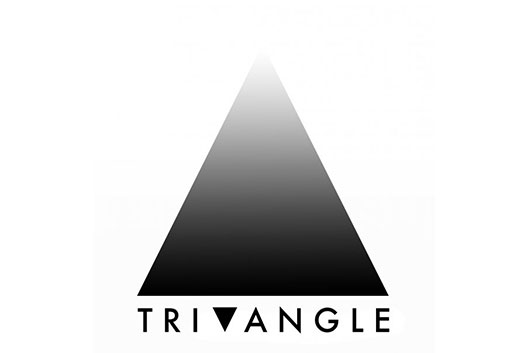
2. Clone
It’s not often that a label can manage to stay relevant for more than a few years, yet Clone has done exactly that for nearly two decades. Established in 1993, it’s one of those rare labels that not only has staying power, but has also remained thoroughly compelling, even in the face of a rapidly changing musical world. This year, the Dutch imprint showed no signs of slowing down, its usual heavy slant towards the old-school sounds of Detroit and Chicago leading the charge. Its essential Drexciya retrospective series, Journey of the Deep Sea Dweller, set the tone by engaging directly with the seminal material that provided the blueprint for much of the label’s aesthetic. Then Clone sub-labels Royal Oak and Jack for Daze moved things into the present with paradoxically forward-thinking yet retro-minded 12″s like Alden Tyrell’s and Mike Dunn’s “Touch the Sky,” Arttu’s “Tune In” b/w “Move,” Morning Factory’s “Anna Logue’s Sleepover” b/w “Sleepwalk,” and Marco Bernardi’s The Burning Love Ensemble. Even label founder Serge Verschuur got in on the act, collaborating with Tyrell on the bumping “House Countdown.” The label’s Basement Series imprint also delivered, offering up hard-charging EPs from Conforce and A Made Up Sound. But perhaps Clone’s best moment of 2012 was the recent release of Legowelt’s The Paranormal Soul, an LP that somehow managed to follow last year’s brilliant The Teac Life—just listen to “Rave Til Dawn” and it should be clear why Clone is still one of our favorites after all these years. Derek Opperman

1. 50Weapons
Modeselektor has always unabashedly supported a broad assortment of music, no matter how dumb or distasteful. The German duo has mastered the art of weaving goofy, hyperactive excess into its productions, and many of the signings to the group’s Monkeytown label employ a similar sensibility. 50Weapons, Modeselektor’s other label venture, is a different affair. It too takes in a range of styles, but the majority of its productions are delivered with a bit more austerity. This year, 50Weapons went especially heavy on the albums front, turning in full-length efforts from most of its roster: Shed, Phon.O, Anstam, Addison Groove, Benjamin Damage & Doc Daneeka, and Bambounou. Moreover, the imprint stepped into commercial territory with the debut of the Thom Yorke-led group Atoms For Peace, who split a 12″ with Other Lives. Yet many of the label’s real treasures lay in the depths of its 12″s: Shed’s sublime, breaks-led “RQ-170,” DJ Rashad’s frenetic recreation of Addison Groove’s “I Go Boom,” the towering electro of Bambounou’s “Deepstaria,” and A Made Up Sound’s twisted, spectacularly broken Malfunctions. 50Weapons may spell “fun” differently than Monkeytown, but its 2012 output proves that Modeselektor’s instinct for crowd control is as strong as ever. Steve Kerr

XLR8R‘s Best of 2012 coverage will continue through the end of this week and all of next week, so check back each day for additional year-end round-ups. In the meantime, don’t forget to vote in our Readers Poll, and take a look at the other Best of 2012 pieces we’ve posted already:
XLR8R‘s Best of 2012: Top Downloads
XLR8R‘s Best of 2012: Podcasts
XLR8R‘s Best of 2012: Features
XLR8R‘s Best of 2012: Videos

